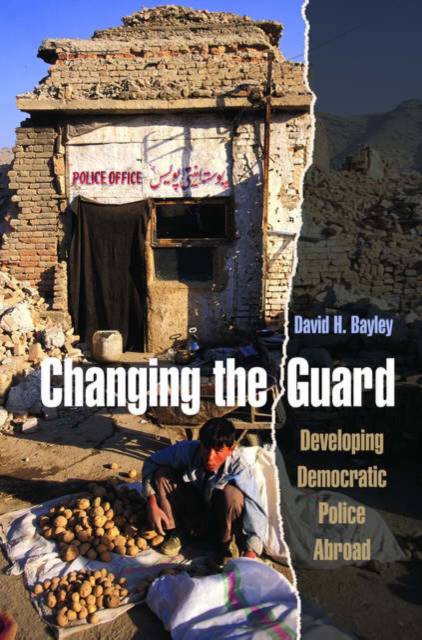
- Afhalen na 1 uur in een winkel met voorraad
- Gratis thuislevering in België vanaf € 30
- Ruim aanbod met 7 miljoen producten
- Afhalen na 1 uur in een winkel met voorraad
- Gratis thuislevering in België vanaf € 30
- Ruim aanbod met 7 miljoen producten
Zoeken
Omschrijving
Every day the American government, the United Nations, and other international institutions send people into non-English speaking, war-torn, and often minimally democratic countries struggling to cope with rising crime and disorder under a new regime. These assistance missions attempt to promote democratic law enforcement in devastated countries. But do these missions really facilitate the creation of effective policing? Renowned criminologist David H. Bayley here examines the prospects for the reform of police forces overseas as a means of encouraging the development of democratic governments. In doing so, he assesses obstacles for promoting democratic policing in a state-of-the-art review of all efforts to promote democratic reform since 1991. Changing the Guard offers an inside look at the achievements and limits of current American foreign assistance, outlining the nature and scope of the police assistance program and the agencies that provide it. Bayley concludes with recommendations for how police assistance could be improved in volatile countries across the world. This book is required reading as an instruction manual for building democratic policing overseas.
Specificaties
Betrokkenen
- Auteur(s):
- Uitgeverij:
Inhoud
- Aantal bladzijden:
- 184
- Taal:
- Engels
- Reeks:
Eigenschappen
- Productcode (EAN):
- 9780195189759
- Verschijningsdatum:
- 24/11/2005
- Uitvoering:
- Hardcover
- Formaat:
- Genaaid
- Afmetingen:
- 147 mm x 218 mm
- Gewicht:
- 385 g

Alleen bij Standaard Boekhandel
+ 251 punten op je klantenkaart van Standaard Boekhandel
Beoordelingen
We publiceren alleen reviews die voldoen aan de voorwaarden voor reviews. Bekijk onze voorwaarden voor reviews.











